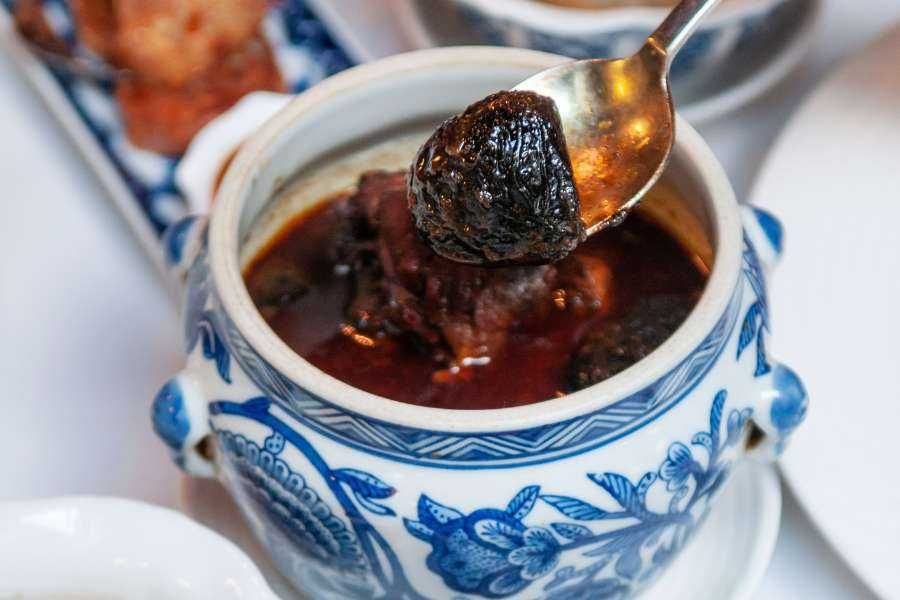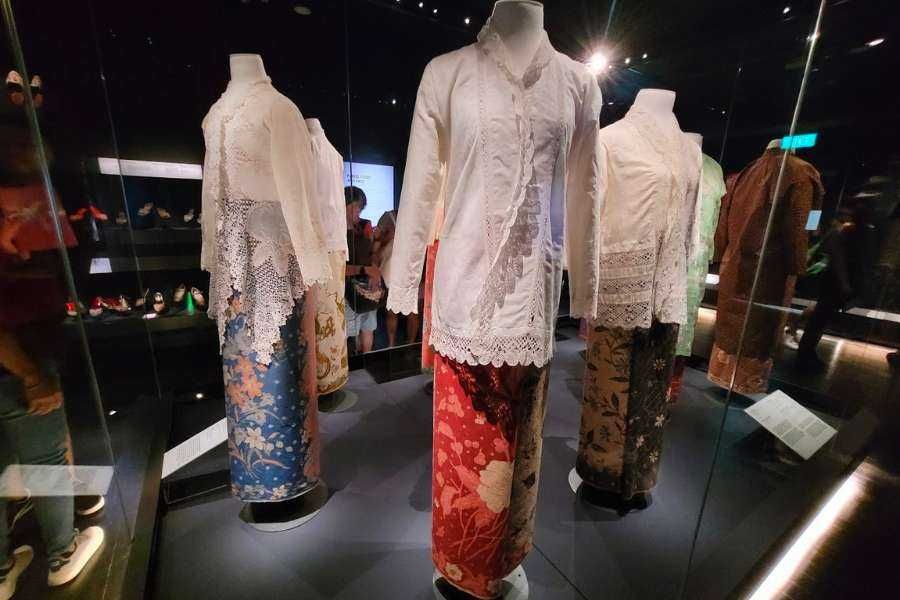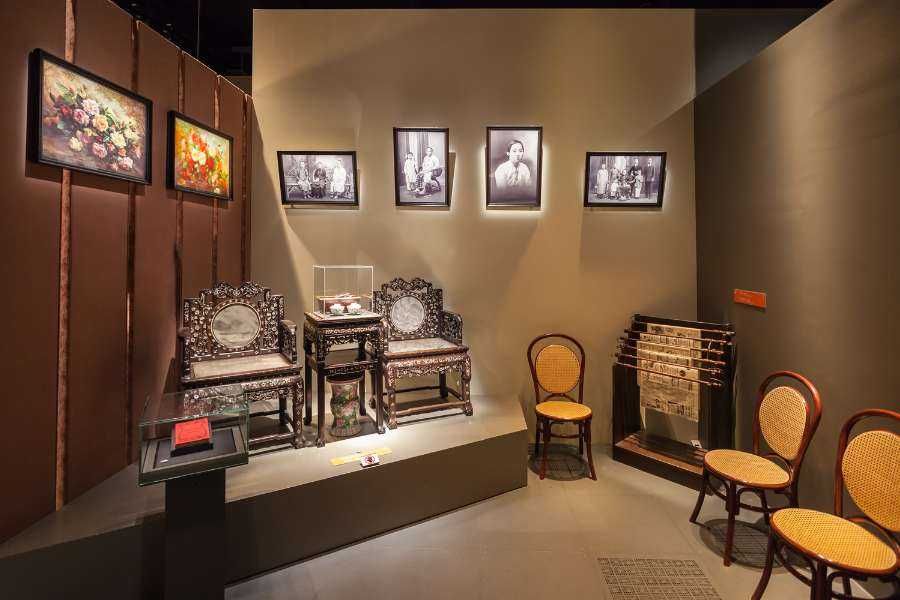Peranakan Culture
Peranakan culture can be found not only in Singapore but also in other Southeast Asian countries, including Malaysia, Indonesia, and Thailand. This unique heritage is quite rare and stands out because it's a blend of Chinese and Malay traditions, creating a one-of-a-kind cultural tapestry. The distinctiveness of Peranakan culture lies in its ability to merge two rich traditions, resulting in a vibrant and captivating way of life that's worth exploring.
Peranakan culture originates from the intermarriage between Chinese immigrants and local Malay communities in the 15th century. This intermingling resulted in a fascinating blend of Chinese and Malay traditions, forming the foundation of Peranakan culture.
The Peranakan people, also known as Baba (male) and Nyonya (female), are descendants of these mixed marriages. They have developed their own distinct customs, practices, language, and fashion that showcase the harmonious blend of their Chinese and Malay heritage.
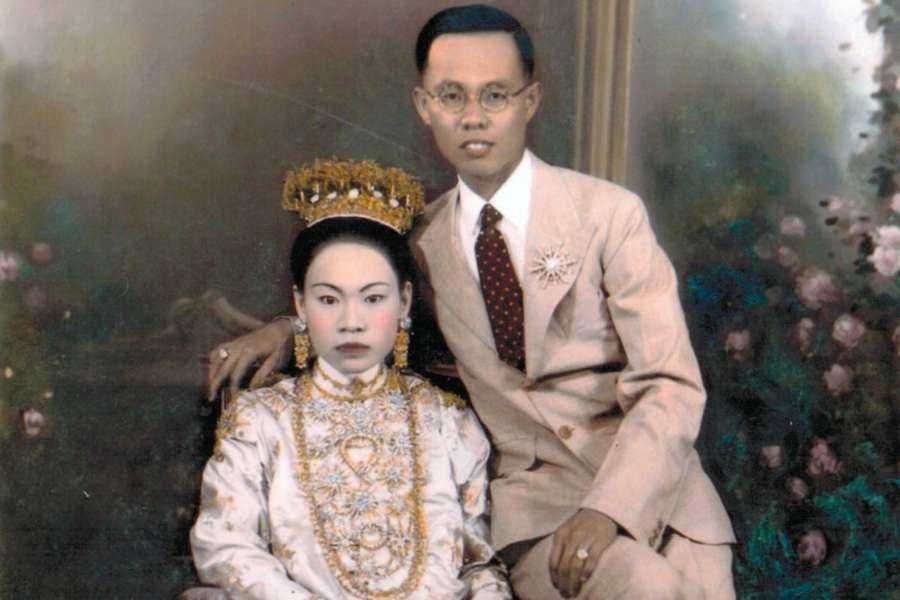
Food holds a special place in Peranakan culture, reflecting the intricate merger of these traditions. Peranakan cuisine, with its flavorful and aromatic dishes, combines Chinese and Malay ingredients and cooking techniques. This unique culinary heritage demonstrates how the blending of cultures can result in delightful and harmonious flavors.
The traditional attire of the Baba and Nyonya community is a unique reflection of their cultural identity. Babas typically wear the Baju Panjang, a long-sleeved jacket paired with trousers, completed with a headdress called Songkok.
The Nyonya, on the other hand, are known for their exquisite Sarong Kebaya. This ensemble combines the Malay sarong, a wraparound skirt, with the Chinese kebaya, a fitted blouse. Nyonya kebayas are often intricately embroidered with vibrant colors and patterns, showcasing the elegance and artistic taste of Nyonya women.
Want to go on a trip to Asia?
Allow us to tailor a bespoke journey that caters to your unique preferences.
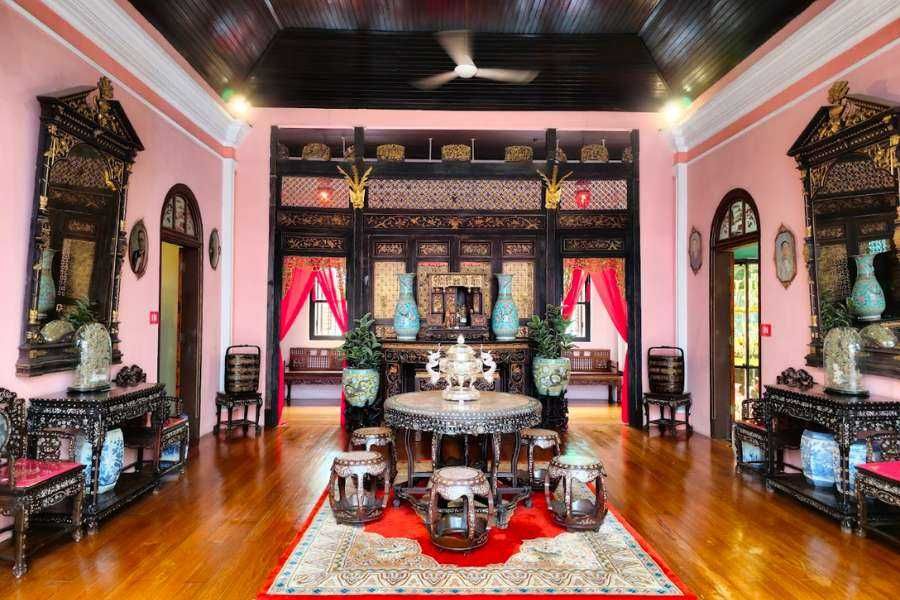
In Peranakan culture, the roles of Babas and Nyonyas extend beyond their attire. Historically, Babas were often involved in business and played an active role in the family's financial matters. Nyonyas, on the other hand, were responsible for managing the household, including cooking, preserving cultural traditions, and raising the family.
While traditional roles like these have evolved over time, Peranakan culture continues to celebrate the contributions of both men and women in various aspects of family and community life.
Language is an integral part of cultural identity, and the Peranakan culture has its own distinct language called Peranakan Baba Malay. This language is a fusion of Malay, Chinese, and Hokkien dialect, reflecting the multicultural heritage of the Peranakan community.
In today's terms, the use of Peranakan Baba Malay has become less common over the years, as younger generations may primarily use more widely spoken languages like English, Mandarin, or Malay. Efforts are being made to revitalize Peranakan Baba Malay through language classes, cultural events, and community activities.
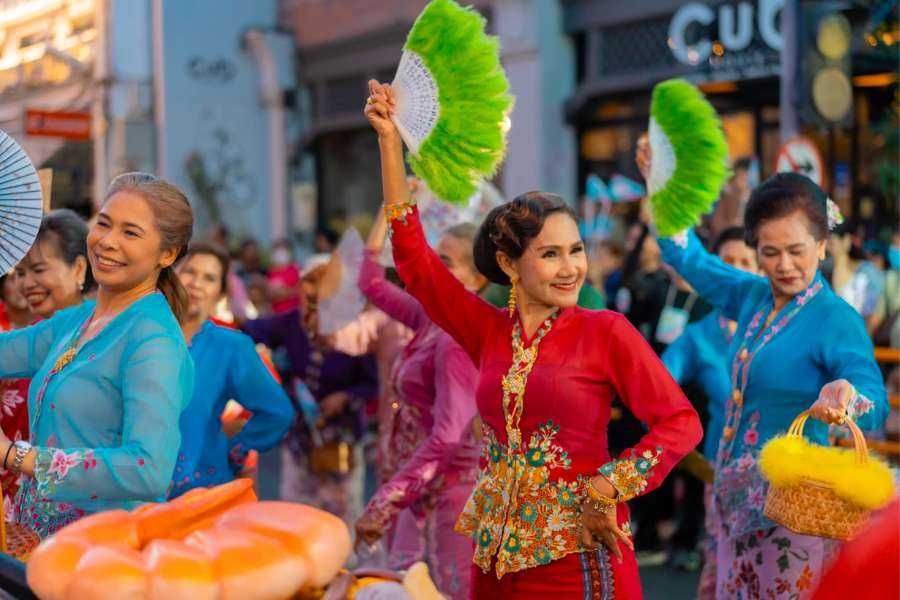
In Singapore, extensive efforts are underway to preserve and promote the rich cultural heritage of the Baba and Nyonya community. The Peranakan Museum stands as a focal point for showcasing the history, art, and traditions of Peranakan culture. Within its walls, visitors can explore the lives of the Babas and Nyonya through exhibits featuring intricate Peranakan artifacts, historical information, and engaging multimedia presentations.
Cultural festivals, such as the Peranakan Festival, play a pivotal role in keeping the traditions alive. These events offer the community a platform to share their rich cultural heritage, including traditional music, dance, and crafts, with a wider audience. Through these initiatives, the legacy of Peranakan culture is preserved and passed on to future generations.

